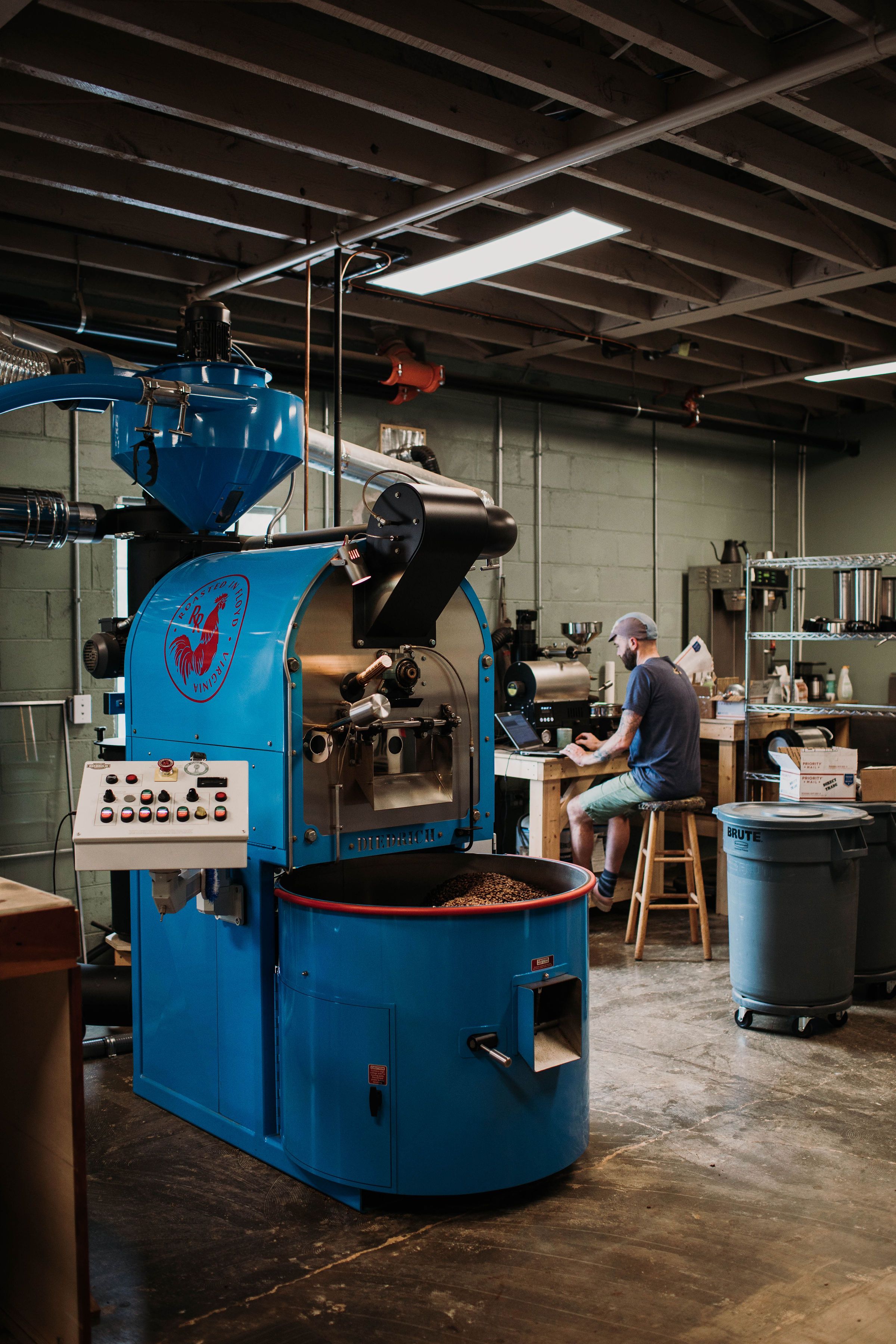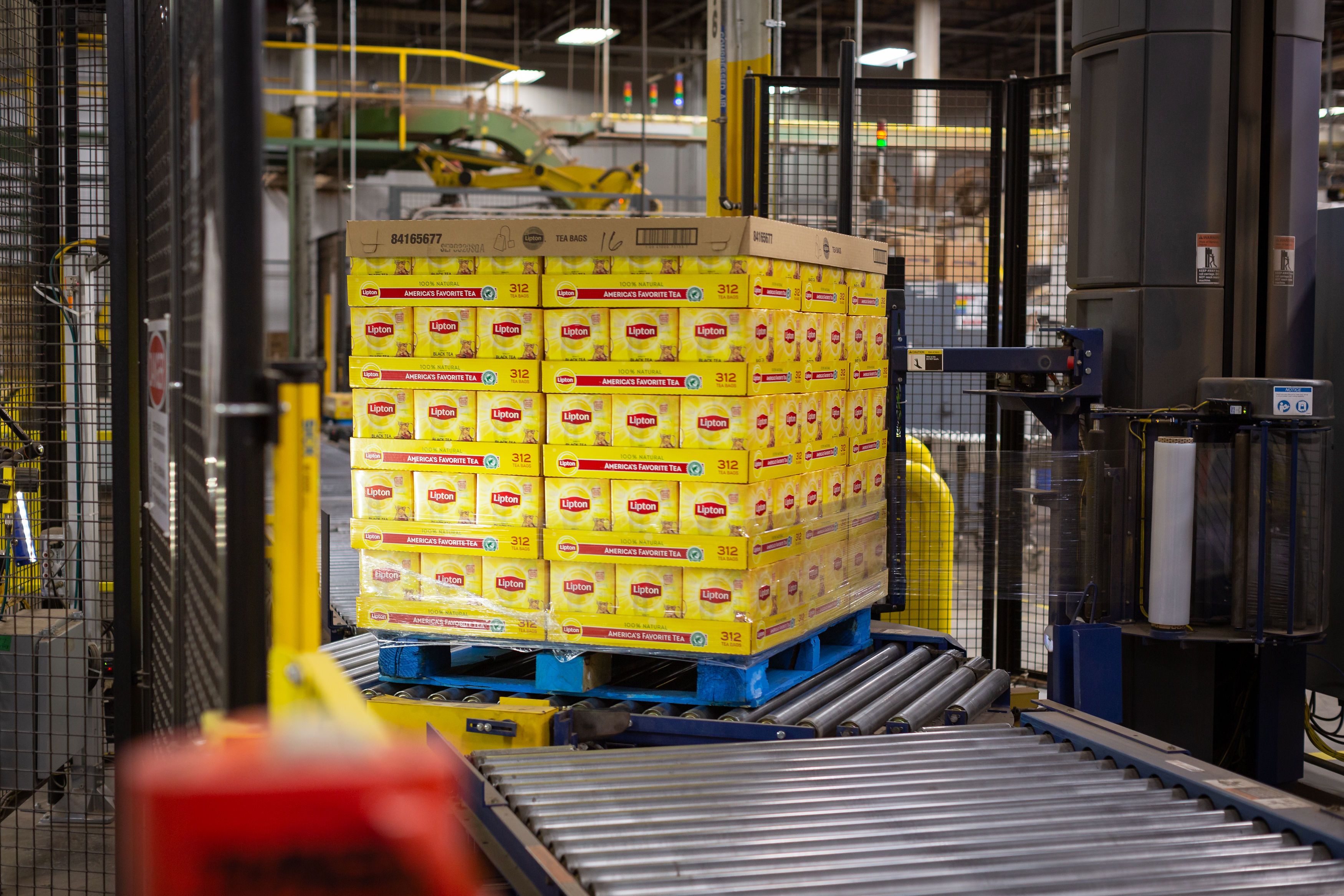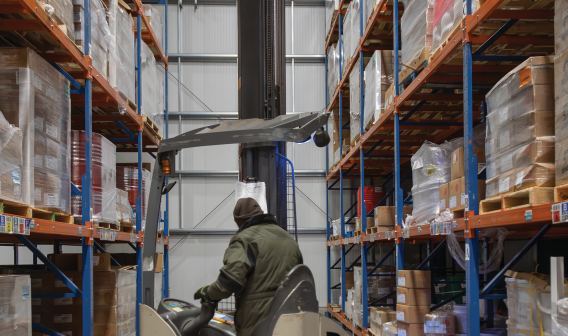A confluence of geographical, workforce, and other advantages has put Hampton Roads in a strong position in the caffeinated beverage industry. The region is home to a large tea processing and packaging plant, four coffee manufacturing facilities, and many support businesses in such areas as warehousing, machinery repair, and packaging supplies.
Over the years, the caffeine industry has grown into an economic engine in Hampton Roads and the City of Suffolk in particular. According to Harvard Business School data, Hampton Roads has the third-highest concentration of people employed in coffee and tea processing in the United States, trailing only Charlotte, N.C., and New York.
According to U.S. Census Bureau data, coffee ranked seventh among products imported into Virginia from 2015–2018, with more than $1.1 billion worth of beans entering the Commonwealth. About a third of all green coffee imported into the United States comes into the Mid-Atlantic region (The Port of Virginia, Baltimore, Savannah, Ga., and Charleston, S.C.).
Where It All Began
The road to caffeine prominence began in 1955 when the Lipton Tea Company built a tea processing and packaging plant in Suffolk, now Lipton’s only processing plant in North America. That plant produces all Lipton tea bags sold in the United States. Lipton, which is owned by Unilever, invested $96 million to expand the plant in 2013.
Hills Bros. opened a manufacturing plant in Suffolk in 1986 that’s now owned by Massimo Zanetti Beverage USA, which also has a distribution center located in Portsmouth. The 355,000-sq.-ft. plant roasts enough beans daily for about 20 million cups of coffee and packages the ground or whole bean product into bags, cans, and single-serving cups.
In addition to Hills Bros., Massimo Zanetti’s lines of coffee include Chock full o’Nuts, Kauai Coffee, and Chase & Sanborn. The plant also produces coffee for about 30 private-label clients. In all, Massimo Zanetti produces hundreds of types of coffee from beans grown all over the world.
“There is not a country of origin you can name that we do not bring into the building,” said Charlie Cortellini, vice president of research and development at Massimo Zanetti.
Other coffee companies followed the path forged by Hills Bros. and Massimo Zanetti. The J.M. Smucker Company makes liquid coffee concentrate at its plant in Suffolk, and Keurig Dr Pepper roasts and packages coffee in nearby Isle of Wight County.
Supply Chain Advantages and Industry Growth
One of the reasons the Hampton Roads region became a hub for coffee and tea is its location at the geographic center of the East Coast, with access to interstate highways and railroads. Massimo Zanetti moves finished coffee products from Suffolk to its warehouse in Portsmouth for distribution, using the highways for destinations on the East Coast and Midwest and railroads for the West Coast. The company also leases warehouse space in Missouri, Nevada, and New Jersey to stage its products close to customers in those regions.
But the biggest asset for local coffee and tea producers in Hampton Roads is The Port of Virginia. Norfolk International Terminals and Virginia International Gateway, both located in Norfolk’s harbor, are entry points for green coffee beans (the raw form of the beans) and tea leaves arriving from overseas.
The willingness of officials at The Port of Virginia to expand into coffee beans in the 1980s impressed executives at Hills Bros. when they were searching for a site to build a coffee bean roasting facility, Cortellini recalls.
“That is one of the reasons we did settle in Suffolk. The Virginia Port Authority was very interested in moving forward. It really was a good symbiotic relationship,” said Cortellini, a longtime employee who relocated from Hills Bros.’ New Jersey plant to the Suffolk operation when it opened.
The 25-mile distance between the Norfolk harbor and Suffolk means that Massimo Zanetti’s employees don’t have to worry about weather or traffic conditions delaying deliveries from coffee-heavy out- of-state ports such as New York, Miami, or New Orleans. Since Massimo Zanetti schedules deliveries of beans on a just-in-time basis, proximity is crucial. “You don’t want 500 people standing around waiting for a trailer,” Cortellini said.
Building The Port of Virginia's Volume
After building its volume of coffee imports for several decades, The Port of Virginia was certified in 2016 as a delivery point for Arabica coffee beans traded through the Intercontinental Exchange’s “C” futures contracts.
The designation allows local exchange-certified warehouses to store the Arabica beans, giving Massimo Zanetti “a broader array of coffees that are available to us on a spot basis,” Cortellini said. Massimo Zanetti buys most of its beans through futures contracts, he adds.
The certified warehouses include Continental Terminals’ storage and distribution facilities in Suffolk and Chesapeake, RPM Warehousing & Transportation’s facility in Chesapeake, and the Pacorini Global Services facility in Suffolk.
In addition to location, another advantage of the Hampton Roads region is the workforce, because people have experience working in the coffee and tea industries. As Cortellini explained, “The general knowledge of coffee and how you take it from green bean to finished good has definitely grown a lot since we started.”
Planning for the Future
Suffolk uses its position in the industry to actively court coffee and tea producers. The idea to market itself as “Virginia’s Caffeine Capital” was sparked when Lipton decided to reinvest in its plant in 2013.
Suffolk’s coffee and tea status stems from numerous factors, from the faith shown by Massimo Zanetti in the 1980s to the ICE designation. Existing infrastructure and proximity to other coffee-related businesses helps the city and the Hampton Roads region remain a major factor in the industry.
“You’ve got some of the largest brands and companies in the industry right here,” Brian Kubicki, vice president of business development for Massimo Zanetti, told The Virginian-Pilot in 2016. “Folks who know coffee know that Hampton Roads is important.”
Virginia Roasters Earn National Recognition for Quality
While Hampton Roads is a major player in the import sector of the coffee supply chain, roasters across Virginia are drawing notice for what they’re doing with beans closer to the end of the process. Two Virginia roasters were ranked among the top 12 coffee roasters in the United States by Forbes in 2018.
Red Rooster Coffee opened in downtown Floyd in 2010 with values reflecting its small-town origins: quality, environmental stewardship, and family. The company uses organic and fair-trade coffees whenever possible, with a particular focus on partnerships with farms that treat workers fairly.






